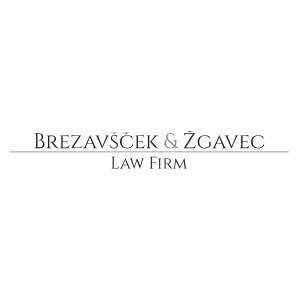Best International Trade Law Lawyers in Ljubljana
Share your needs with us, get contacted by law firms.
Free. Takes 2 min.
List of the best lawyers in Ljubljana, Slovenia
About International Trade Law in Ljubljana, Slovenia
International Trade Law in Ljubljana, Slovenia, operates within the framework of Slovenian national laws and European Union regulations. As a member of the EU, Slovenia adheres to the Union's customs and trade policies, which are designed to facilitate free trade among EU countries while protecting the internal market from unfair practices. Ljubljana, being the capital, is home to many legal experts in this field, facilitating businesses involved in cross-border trade by ensuring compliance with international trade agreements, resolving trade disputes, and advising on tariffs and trade barriers.
Why You May Need a Lawyer
There are several situations where individuals and businesses may need legal assistance in International Trade Law in Ljubljana, Slovenia:
- Negotiating and drafting international sales contracts.
- Complying with import and export regulations and documentation requirements.
- Resolving disputes related to international commercial transactions.
- Navigating customs and tax implications of cross-border trade.
- Addressing issues related to intellectual property rights in the context of international trade.
- Understanding the implications of trade agreements and tariffs.
- Protecting business interests against unfair trade practices.
Local Laws Overview
Slovenian trade law is significantly influenced by EU regulations. However, some local laws are crucial for international trade in Ljubljana, Slovenia. These include:
- The Customs Act, which governs imports, exports, and transit of goods.
- The Act on Foreign Trade provides guidelines for international trading activities.
- The Value Added Tax Act that specifies the VAT applied to goods and services, including those in international trade.
- Slovenian Commercial Code which regulates all aspect of commercial enterprise, including international trade agreements and disputes.
Businesses engaged in international trade must also consider legal requirements pertaining to environmental protection, consumer rights, and data protection, as these regulations often impact cross-border activities.
Frequently Asked Questions
What are the common import/export regulations in Slovenia?
Slovenia follows EU regulations, requiring adherence to EU customs codes and specific Slovenian national measures for certain goods.
How are VAT implications handled in international trade within Slovenia?
Slovenia applies VAT to goods and services traded internationally, with specific rules for the VAT treatment depending on the nature of the transaction.
What should I include in an international sales contract?
A comprehensive contract should cover product details, pricing, delivery terms, payment terms, dispute resolution mechanisms, and applicable law.
What is the procedure for dispute resolution in international trade?
Disputes can be settled through arbitration, litigation, or alternative dispute resolution (ADR) processes, depending on the contract terms and involved parties’ preferences.
How can I protect intellectual property during international transactions?
Businesses should register trademarks and patents internationally and include IP-related clauses in contracts to safeguard intellectual property rights.
What customs duties apply to imported goods?
Customs duties are governed by the EU's Common Customs Tariff, but additional charges may apply depending on the goods' nature and origin.
Are there any international trade sanctions affecting Slovenia?
Slovenia adheres to EU-imposed sanctions, which can affect trading with certain countries or specific products.
How does Slovenia's membership in the EU impact its international trade laws?
Being part of the EU means Slovenia benefits from agreements negotiated by the EU with third parties and subscribes to unified customs and trade legislation.
What legal resources are available for international trade compliance?
Slovenian businesses can access several governmental and EU resources for compliance guidelines, including the Slovenian Chamber of Commerce and Industry.
What are Incoterms, and why are they important?
Incoterms are standardized trade terms used internationally to clarify transaction responsibilities, including costs and risks associated with goods delivery.
Additional Resources
Here are some recommended resources for those seeking more information on International Trade Law in Ljubljana, Slovenia:
- The Slovenian Chamber of Commerce and Industry offers guidance and resources for businesses engaged in international trade.
- The Ministry of Economic Development and Technology provides information on trade regulations and policies.
- The European Commission's trade pages contain detailed information on EU trade policies that apply to Slovenia as an EU member state.
- Slovenian Bar Association can help find qualified legal experts in the field of International Trade Law.
Next Steps
If you need legal assistance in International Trade Law in Ljubljana, Slovenia, consider the following steps:
- Identify the specific legal issue or aspect of international trade you need help with.
- Research and list potential law firms or legal experts in Ljubljana who specialize in International Trade Law.
- Prepare detailed documentation of your case or query to facilitate an effective consultation.
- Schedule consultations with selected law firms or attorneys to discuss your needs and evaluate their expertise and cost.
- Select a lawyer or law firm with the necessary specialization, experience, and understanding of your case.
Legal assistance can play a crucial role in ensuring compliance and safeguarding interests in international trade; it is advisable to thoroughly vet professional help to effectively navigate the complexities of international trade laws.
Lawzana helps you find the best lawyers and law firms in Ljubljana through a curated and pre-screened list of qualified legal professionals. Our platform offers rankings and detailed profiles of attorneys and law firms, allowing you to compare based on practice areas, including International Trade Law, experience, and client feedback.
Each profile includes a description of the firm's areas of practice, client reviews, team members and partners, year of establishment, spoken languages, office locations, contact information, social media presence, and any published articles or resources. Most firms on our platform speak English and are experienced in both local and international legal matters.
Get a quote from top-rated law firms in Ljubljana, Slovenia — quickly, securely, and without unnecessary hassle.
Disclaimer:
The information provided on this page is for general informational purposes only and does not constitute legal advice. While we strive to ensure the accuracy and relevance of the content, legal information may change over time, and interpretations of the law can vary. You should always consult with a qualified legal professional for advice specific to your situation.
We disclaim all liability for actions taken or not taken based on the content of this page. If you believe any information is incorrect or outdated, please contact us, and we will review and update it where appropriate.

















